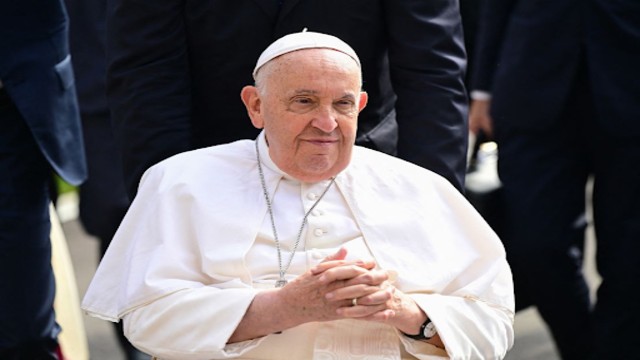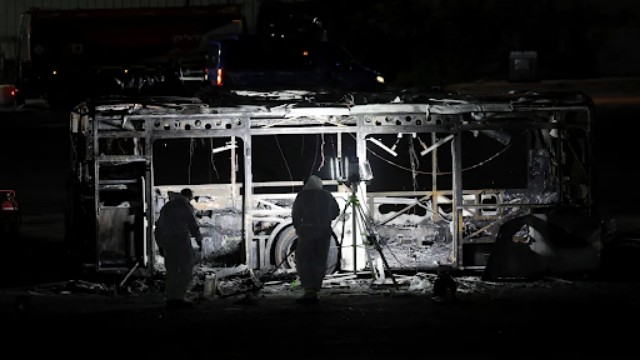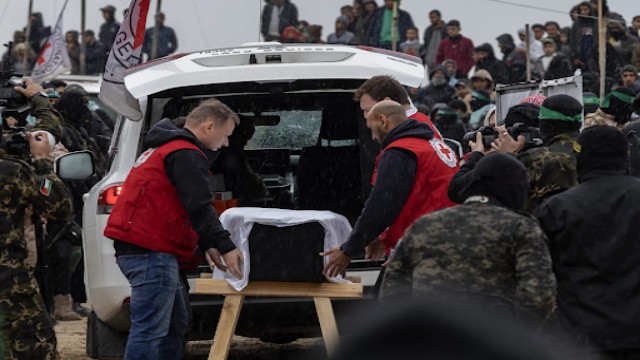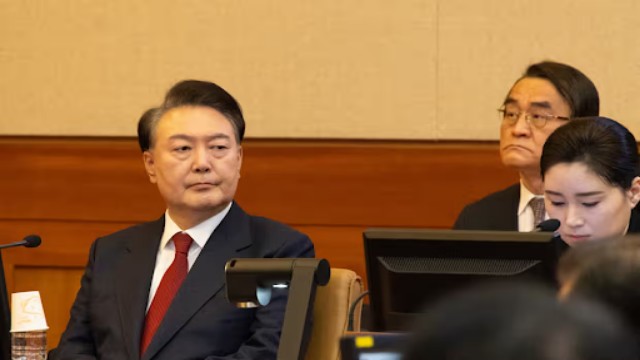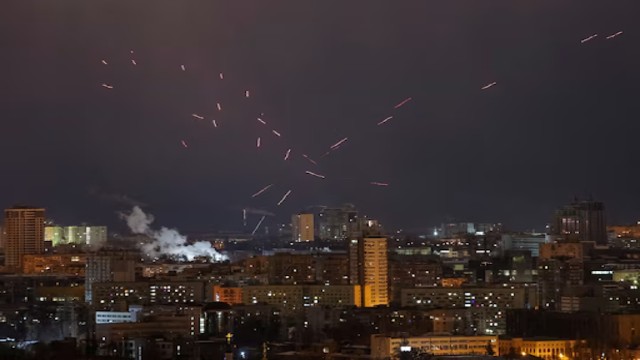
Russian drone attack hits Kyiv. Reuters
The United States has put forward a new proposal at the United Nations, creating a divide between Washington and its European allies over how to mark the third anniversary of Russia’s invasion of Ukraine. The U.S. resolution calls for an end to the conflict and urges lasting peace between Ukraine and Russia.
This move comes as U.S. President Donald Trump pushes for a diplomatic solution, which has caused tension with Ukrainian President Volodymyr Zelenskiy. European allies fear that Ukraine and the EU could be excluded from key peace talks.
The proposed U.S. resolution, a brief three-paragraph document, expresses sorrow over the loss of life and emphasizes the U.N.'s role in maintaining peace. It calls for a quick resolution to the conflict and long-term peace. However, Russia has suggested changes to the wording, asking that it also address the "root causes" of the war.
Russia's ambassador to the U.N., Vassily Nebenzia, welcomed the U.S. proposal. A Russian diplomat indicated that if the General Assembly accepts Russia’s amendment, Moscow might support the resolution. The U.S. had discussed the draft with Russian officials before presenting it to the 193-member General Assembly.
At the same time, Ukraine and the European Union have been working on their own resolution, set for a vote on Monday. Their draft calls for de-escalation, an end to hostilities, and a resolution based on the U.N. Charter and international law. EU ambassadors will meet to discuss the U.S. proposal before making a decision.
For the past month, Ukraine and the EU have been negotiating with U.N. member states to gain support. While General Assembly resolutions are not legally binding, they carry political influence by showing where the global community stands on the war. Unlike the Security Council, no country has veto power in the General Assembly.
The Ukrainian-EU resolution stresses the need to end the war this year and increase diplomatic efforts to prevent further escalation. It appears to take a softer stance on Russia compared to previous resolutions, using the term "aggression" without directly naming Moscow.
This is different from an earlier resolution, which had 141 votes in favor and strongly condemned "the aggression by the Russian Federation." However, the new draft maintains that Russia must withdraw its forces from Ukraine’s recognized territory and cease all hostilities.
Since the war began, the U.N. General Assembly has passed six resolutions condemning Russia. The most supported resolution came in October 2022, with 143 countries voting to reject Russia’s annexation of four Ukrainian regions.
The ongoing debate at the U.N. highlights the growing differences between the U.S., Ukraine, and Europe in their approach to resolving the war. The outcome of Monday’s vote could influence future peace talks and determine how the international community responds to the ongoing conflict.



